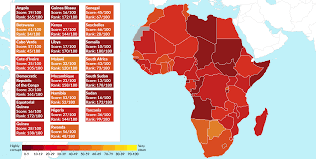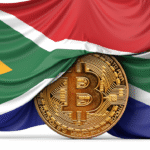The numbers are staggering and the evidence overwhelming: across Africa, billions of dollars in foreign aid intended to lift populations out of poverty are systematically diverted into the pockets of corrupt officials, leaving the continent’s most vulnerable populations abandoned and development goals in tatters. This explosive investigation reveals how foreign aid corruption in Africa is operated.
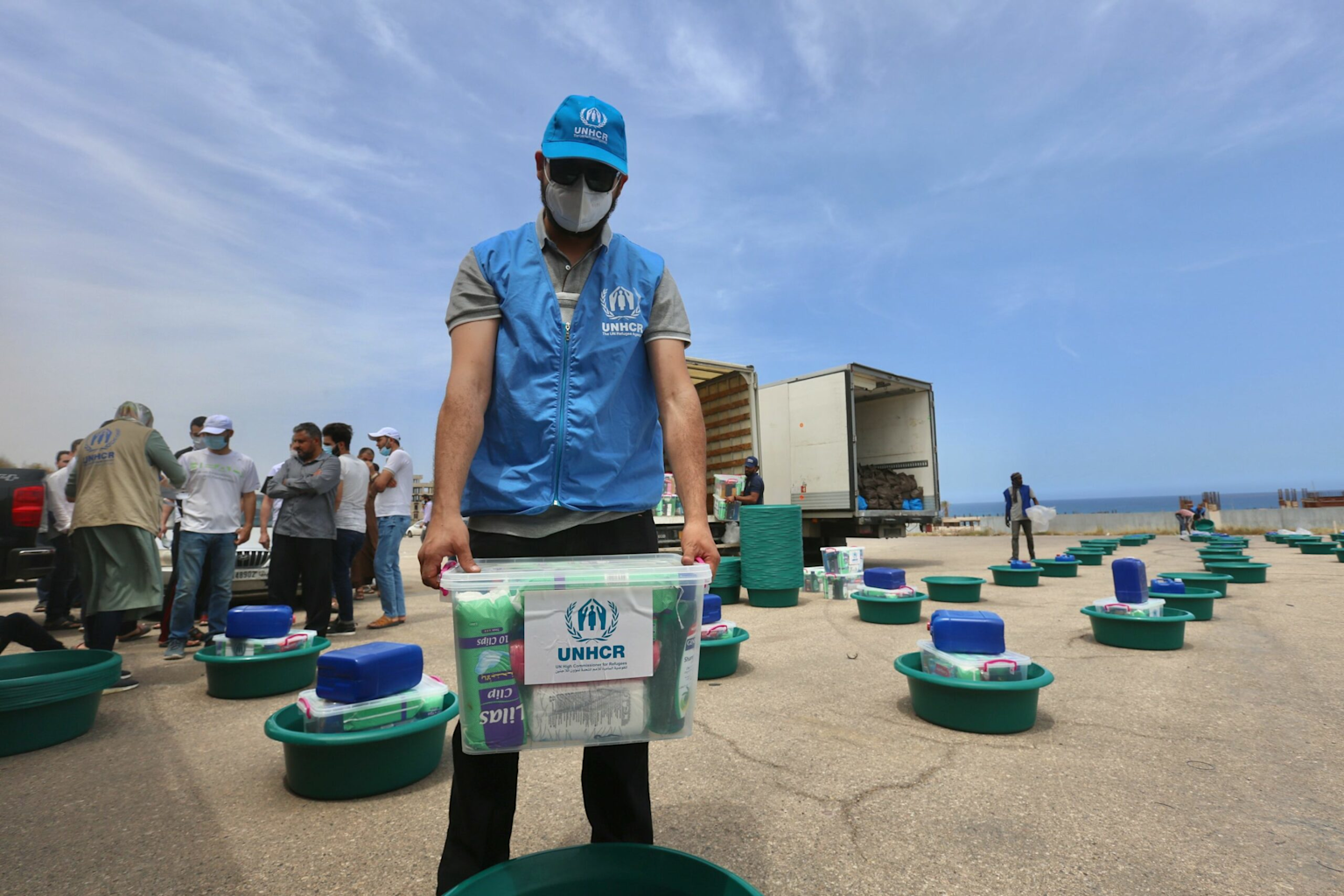
UNHCR aid worker distributing supply kits in an outdoor setting illustrating foreign aid distribution efforts. By GISREPORTSONLINE
This investigation exposes the intricate web of corruption that has transformed international assistance into a feeding trough for political elites, while hospitals lack medicines, schools remain without teachers, and infrastructure projects exist only on paper. From Kenya’s missing $3 billion to Chad’s oil revenue manipulation, from Nigeria’s vanished education funds to South Sudan’s embezzled humanitarian assistance, the pattern is consistent and devastating.
The Scale of the Crisis
Sub-Saharan Africa receives the highest amount of foreign aid per capita globally which is approximately $22.5 billion annually from developed countries alone. Yet the region consistently ranks as the most corrupt in the world, with an average Corruption Perceptions Index score of just 33 out of 100. This means that for every dollar intended to help Africa’s poorest citizens, a significant portion never reaches its intended destination.
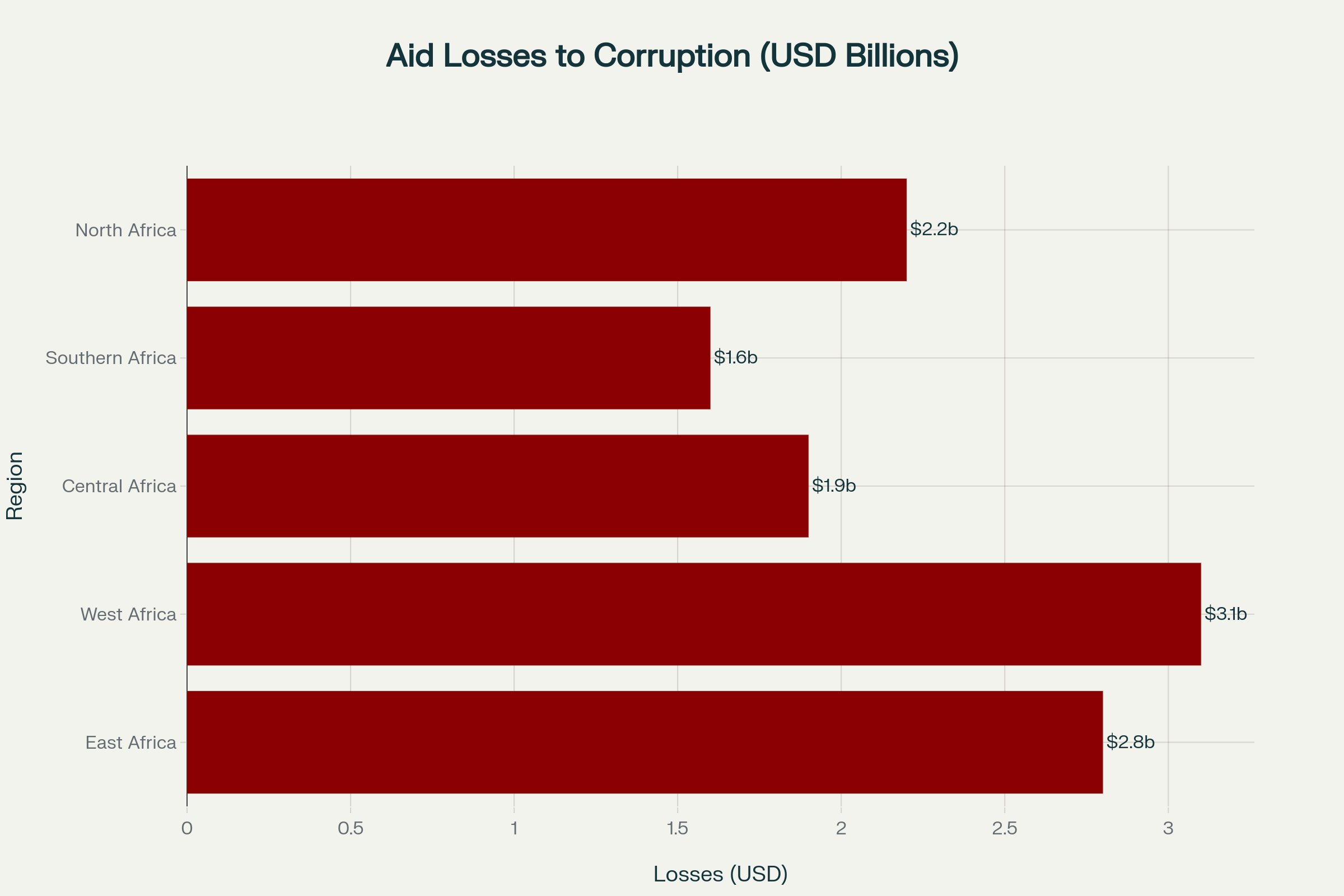
Regional breakdown of estimated annual foreign aid losses to corruption across Africa, highlighting West Africa as the most affected region
The African Union estimates that corruption costs the continent approximately $150 billion annually. When viewed against the backdrop of total foreign aid flows, this figure reveals the magnitude of resources being siphoned away from development programs. The leaked Panama Papers and subsequent investigations have shown how African officials use offshore accounts, shell companies, and complex financial networks to hide stolen aid money.
Kenya: Elite Capture of World Bank Funds
Kenya provides perhaps the most documented case of systematic aid theft. A groundbreaking study by World Bank researchers revealed that Kenyan elites siphoned $3.3 billion (Sh328 billion) of World Bank aid payments to offshore accounts between 1990 and 2010.
“We document that aid disbursements to the most aid-dependent countries coincide with significant increases in deposits held in offshore financial centres known for bank secrecy and private wealth management,” the researchers noted, describing a “leakage rate of around 7.5 percent for the average highly aid-dependent country”.
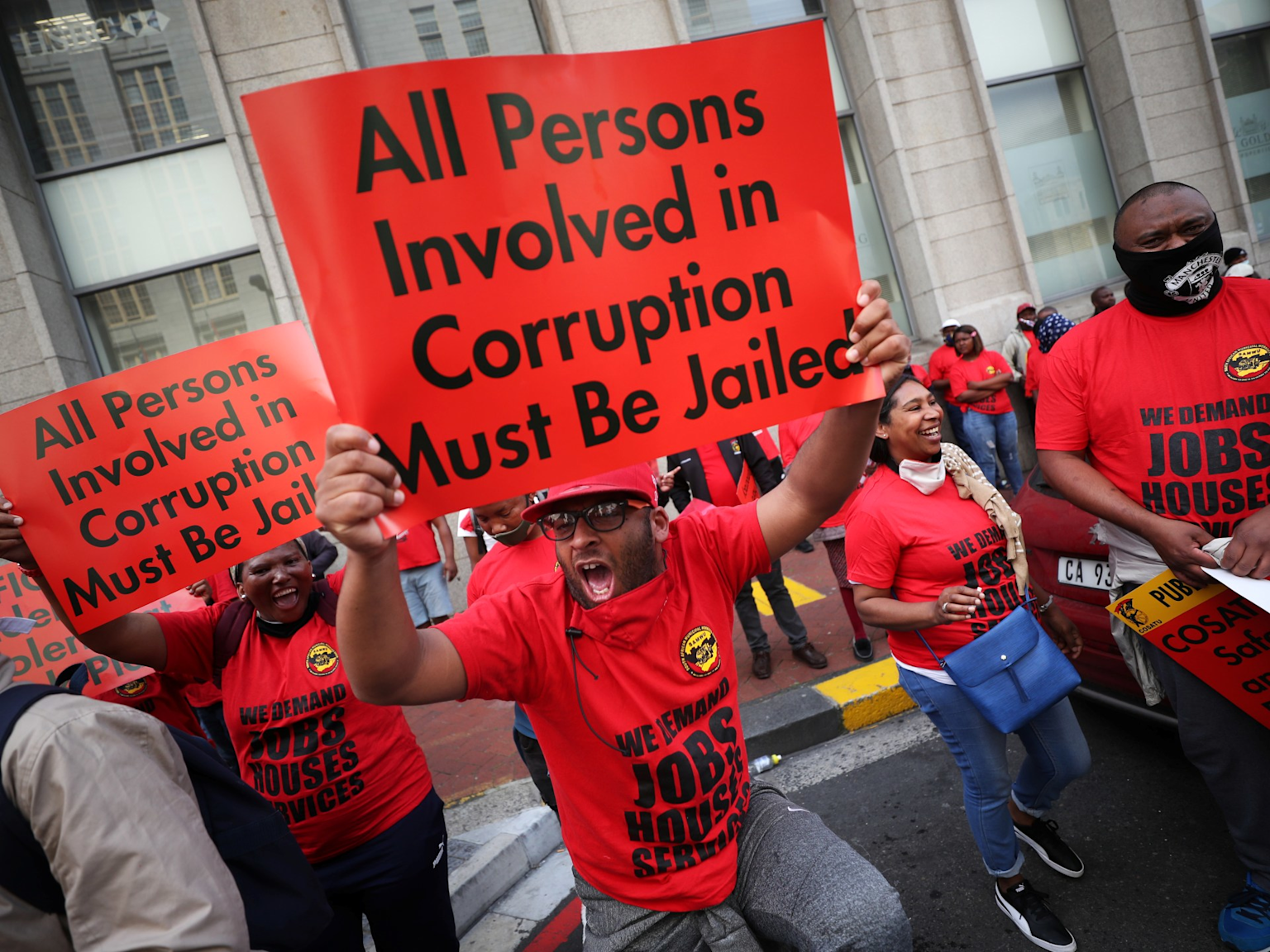
Protesters demand jail for all persons involved in corruption, highlighting public outcry against corruption in Africa. Image by Aljazeera
The World Bank’s own investigations have led to multiple suspensions of funding. In 2009, the Bank suspended disbursements to two major Kenyan projects – the Kenya Education Sector Support Programme (KESSP) and the Western Kenya Community Driven Development project – after discovering “serious incidents of fraud and corruption”. Finance Minister Uhuru Kenyatta admitted the government had frozen accounts and suspended about 50 project staff for alleged involvement in fraud.
Nigeria: Babangida and Abacha’s Billion-Dollar Heists
Nigeria’s corruption under military rulers Ibrahim Babangida and Sani Abacha represents some of the most brazen theft of public resources in modern history. During his rule, General Babangida accumulated an estimated fortune of $8 billion, while his successor Abacha amassed $5 billion in just four years in office.
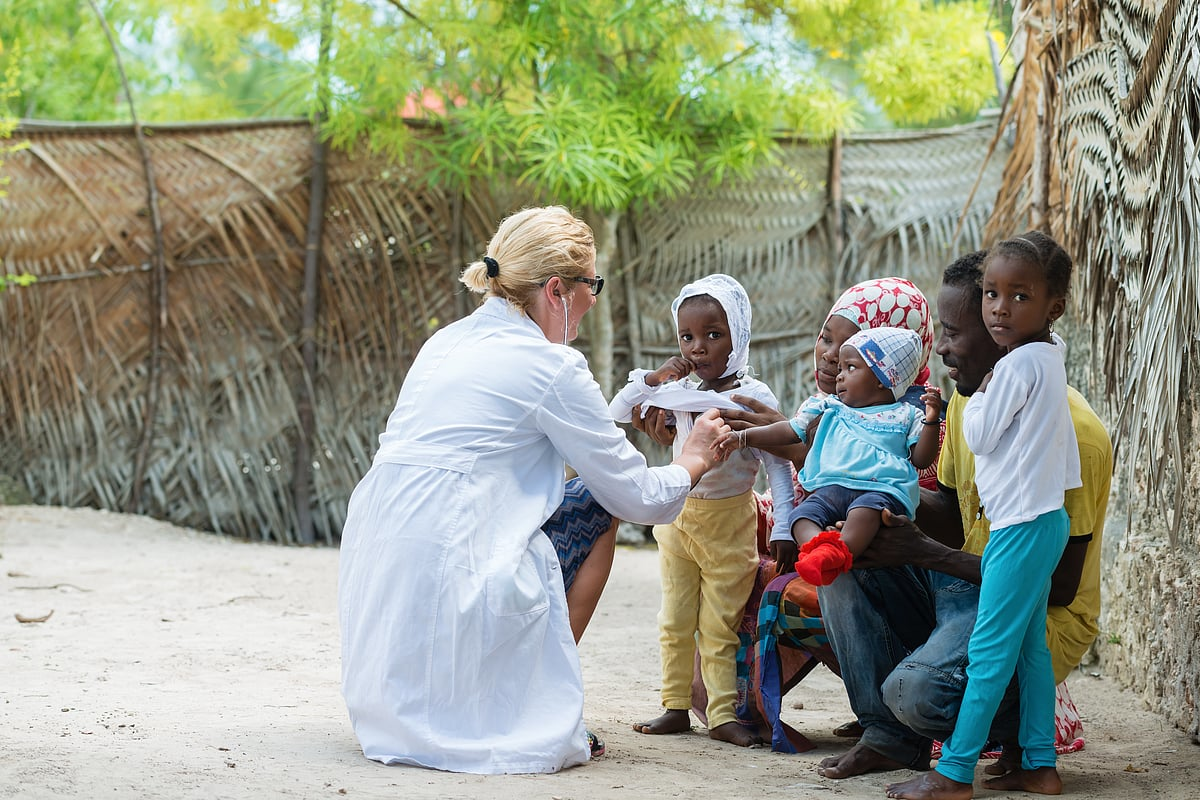
Foreign aid worker engaging with children in a rural African community during a health or humanitarian outreach
The methods were sophisticated. According to a transitional government report, Abacha instructed his national security adviser to provide fake funding requests, which Abacha approved. The Central Bank of Nigeria then sent cash or traveller’s cheques to the security adviser, who delivered them to Abacha’s house. An associate then arranged to launder the money to offshore accounts. An estimated $1.4 billion in cash was delivered this way.
As of 2019, more than 20 years after Abacha’s death, the U.S. Justice Department was still working to recover stolen funds. In 2014, the United States announced the forfeiture of $480 million to the Nigerian government – the largest in U.S. history at that time. Jersey discovered more than $267 million in funds that had been laundered through the U.S. banking system.
Chad-Cameroon Pipeline: World Bank’s Failed Experiment
The Chad-Cameroon oil pipeline project represents the World Bank’s most ambitious attempt to prevent corruption in resource extraction – and its most spectacular failure. Despite novel revenue management laws and monitoring systems designed to ensure oil revenues benefited the poor, the project became a textbook case of how sophisticated anti-corruption measures can be systematically undermined.
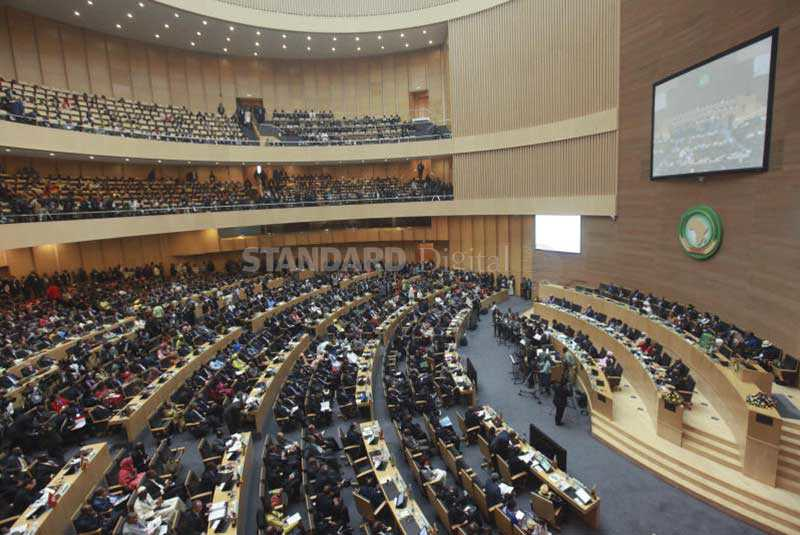
African Union headquarters conference hall during a high-profile meeting addressing corruption among African states
President Idriss Déby shocked the international community by using Chad’s initial oil royalties to purchase weapons, directly violating the Bank’s agreements. When the Bank suspended lending in 2006, Déby threatened to cut off oil production, forcing the Bank to resume lending and relax restrictions on government spending. In 2008, the World Bank withdrew from the project entirely.
“The Bank failed in the case of the Chad-Cameroon Oil Pipeline because the Bank did not adequately consider the local context; failed to listen to all of the stakeholders within Chad; did not ensure that all parties realized benefits from third-party coordination; and failed to institute firm measures to ensure Chad’s continuing compliance,” concluded a Yale Law Journal analysis.
Angola: $32 Billion in Missing Oil Revenues
Angola’s oil sector epitomizes how natural resource wealth becomes a vehicle for grand corruption. The International Monetary Fund uncovered $32 billion in excess revenues over expenditures in Angola’s state budget from 2007 to 2010. This money, generated by oil sales that should have been deposited in the central bank, simply disappeared through the state-owned oil company Sonangol.
Human Rights Watch documented how “literally billions of dollars in oil revenues have illegally bypassed the central bank and remain unaccounted for.” From 1997 to 2002 alone, unaccounted funds amounted to $4.22 billion – roughly equal to the total amount spent on humanitarian, social, health, and education needs during the same period.
The corruption was institutionalized through Angola’s “Angolanisation policy,” which mandated the participation of Angolan companies in oil sector services. These companies, owned by officials close to the president, rarely added value to projects but collected substantial fees as a form of legalized rent-seeking.
South Sudan: Embezzling While Citizens Starve
South Sudan presents perhaps the most tragic case of aid theft. Despite being the world’s youngest nation and receiving billions in international assistance, South Sudan’s leaders have systematically embezzled funds while their citizens face famine and conflict.
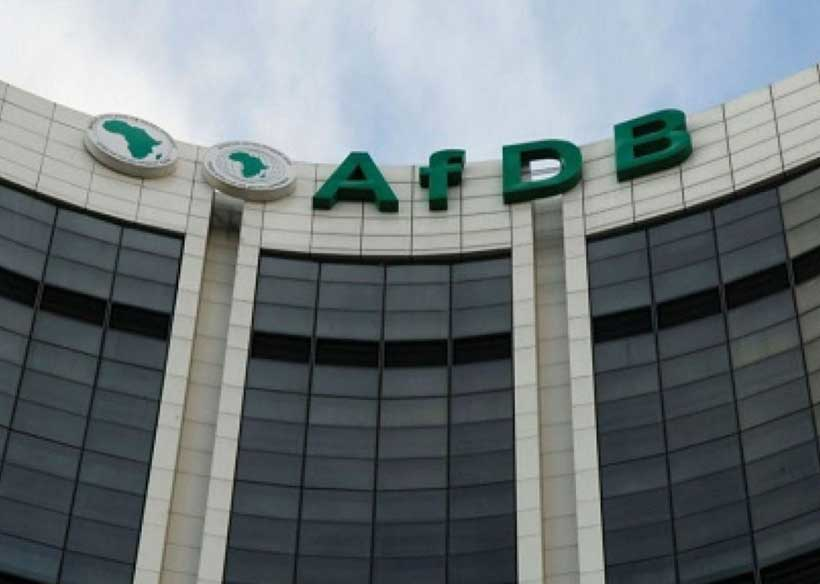
The African Development Bank headquarters building with its recognizable logo and African continent emblems
A UN Commission on Human Rights report revealed that senior officials and politicians misappropriated at least $36 million in public funds since 2016, often with the complicity of international companies and banks. Commission chair Yasmin Sooka noted that this figure “may not reflect the whole picture” and represents only what could be traced.
The theft occurs even as South Sudan borrows money to pay basic salaries. In March 2021, the country borrowed $174.2 million from the IMF, half of which was used to pay officials’ salaries. Even these funds were not safe – the National Audit Chamber identified a 29% “non-compliance rate,” meaning more than $21 million was unaccounted for.
“Despite the country’s natural resource wealth, mismanagement and corrupt governance have contributed to a situation in which the state cannot feed its population, pay public servants’ salaries, ensure hospitals have a reliable supply of electricity and medicines, or maintain basic infrastructure,” the UN Commission noted.
Democratic Republic of Congo: Mining Billions While People Suffer
The Democratic Republic of Congo, despite being among the world’s largest suppliers of copper and cobalt, remains one of the poorest countries due to systematic corruption in its mining sector. The Kabila family’s business network received hundreds of millions of dollars through opaque mining deals, as revealed by investigative reports.
Dan Gertler, an Israeli businessman sanctioned by the United States for corruption, exemplifies how international actors facilitate African corruption. Between 2010 and 2012 alone, the DRC reportedly lost more than $1.36 billion in revenues due to the underpricing of mining assets sold to offshore companies linked to Gertler. The U.S. Treasury Department found that Gertler paid at least $27.5 million in bribes to secure business advantages for his mining operations.
Comparative Analysis: Learning from Other Regions
Africa’s aid corruption problems are not unique, but their scale and persistence distinguish them from other regions. Brazil’s Operation Car Wash demonstrates how systematic anti-corruption efforts can succeed when supported by strong institutions and civil society.
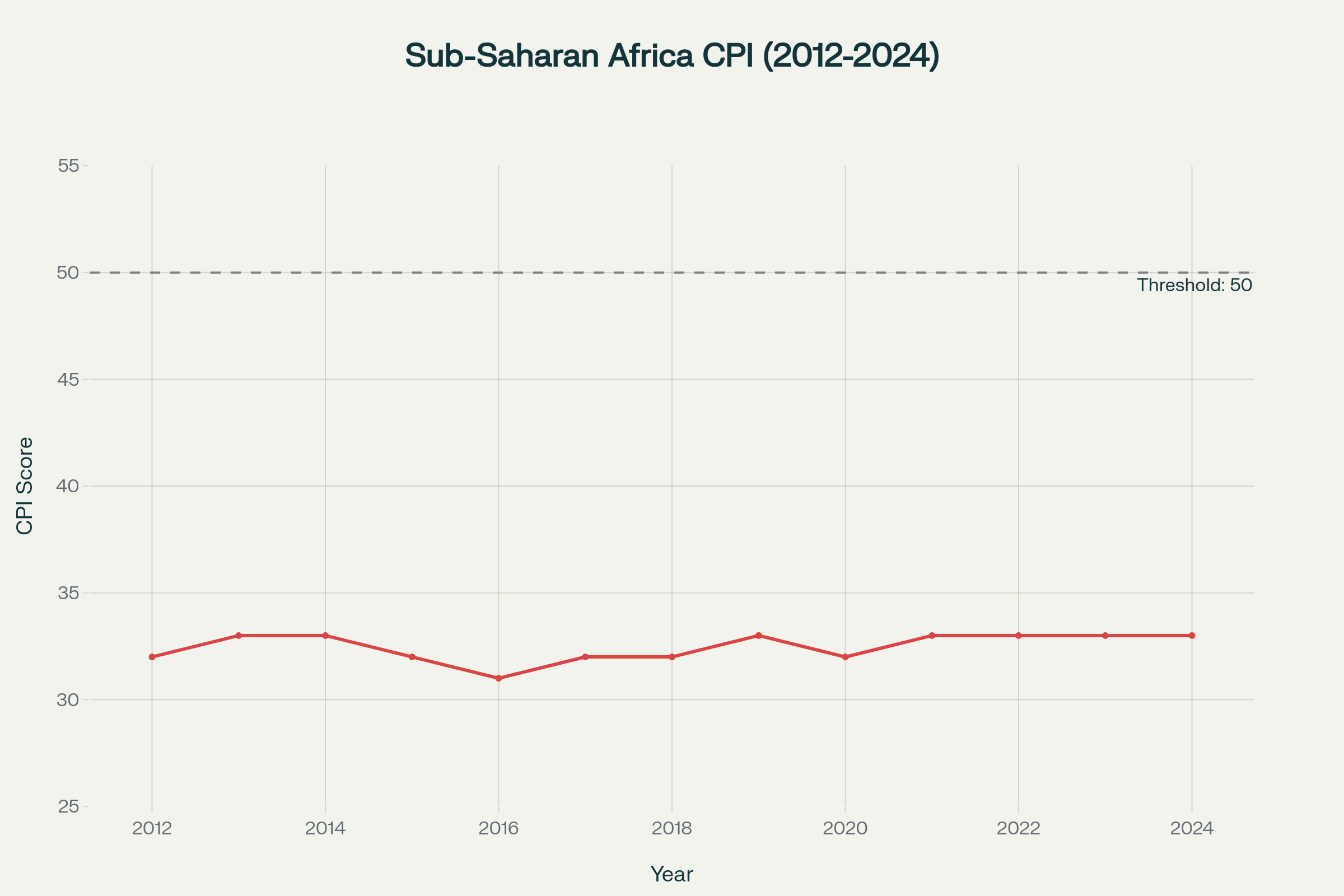
Corruption Perception Index trends for Sub-Saharan Africa showing consistently low scores well below the 50-point threshold for clean governance
Brazil’s Controladoria Geral da União (CGU) conducts random audits of municipalities receiving federal transfers. Between 2003 and 2015, the CGU conducted 2,241 audits covering $5.6 billion worth of federal funds. These audits not only expose corruption but also deter future misconduct through electoral accountability and judicial punishment.
In the Philippines, the Priority Development Assistance Fund (PDAF) scandal involved similar patterns to African aid theft – politicians funneling discretionary funds through bogus organizations controlled by businesswoman Janet Lim-Napoles. The scandal involved approximately 10 billion pesos (roughly $200 million), but unlike many African cases, it led to arrests and institutional reforms, including the Supreme Court ruling PDAF unconstitutional.
The Mechanisms of Theft

Breakdown of foreign aid misappropriation methods in Africa, showing personal enrichment as the largest category at 35%
Investigative findings reveal consistent patterns in how foreign aid is misappropriated across Africa:
Personal Enrichment (35%): Direct transfer of funds to personal accounts, often through offshore banking networks revealed in leaks like the Panama Papers.
Infrastructure Overpricing (25%): Inflating costs of roads, hospitals, and schools, with the excess diverted to officials. The Philippines’ recent flood-control scandal shows similar patterns, with projects costing far more than their actual value.
Ghost Projects (20%): Projects that exist only on paper but receive full funding. President Marcos Jr. of the Philippines found a 55 million peso flood-control project that was “completed” on paper but entirely non-existent on the ground.
Kickbacks to Officials (15%): Systematic payment of percentages to officials for contract approvals, as documented in the DRC mining sector and Kenya’s education projects.
Administrative Overhead (5%): Excessive administrative costs that primarily benefit implementing agencies rather than intended beneficiaries.
Expert Testimony: The View from the Ground
Dr. George Ayittey, economist and author, argues that aid has become counterproductive: “Foreign aid has done more harm to Africa than we care to admit. It has led to a situation where Africa has failed to set its own pace and direction of development free of external interference”.
David Karanja, former Kenyan MP, emphasizes the problem of external control: “Today, Africa’s development plans are drawn thousands of miles away in the corridors of the IMF and World Bank. What is sad is that the IMF and World Bank experts who draw these development plans are people completely out of touch with the local African reality”.
Edward P. Brynn, former U.S. ambassador to Ghana, acknowledges donor responsibility: “We failed to keep a real hands-on posture with aid. We allowed a small, clever class that inherited power from the colonial masters to take us to the cleaners”.
Paul Banoba, Transparency International’s Sub-Saharan Africa Regional Advisor, warns about climate finance: “Africa has the highest vulnerability to climate change impact, hosting nine of the ten most critically affected countries globally. It is critical that all resources mobilised for the climate change response are corruption-proofed through robust anti-corruption systems”.
Civil Society Fighting Back
Despite the overwhelming challenges, African civil society organizations are mounting increasingly sophisticated anti-corruption campaigns. Uganda’s Black Monday Movement has organized monthly protests since 2012, highlighting the effects of corruption and pressing officials to act.
In South Africa, civil society organizations played crucial roles in exposing state capture during the Jacob Zuma administration. The combination of investigative journalism, legal challenges, and public pressure ultimately led to Zuma’s resignation and ongoing prosecutions.
Juana Malalasoa, a Transparency International activist in Madagascar, explains the grassroots approach: “Corruption is currently practiced everywhere in Madagascar, in both the private and public sectors, and has become a culture that some people just can’t shake off”. Her work with investigative journalists has produced articles and films exposing large-scale corruption operations.
The Technology Revolution in Investigations
Modern technology is transforming how corruption is exposed and combated. The Global Investigative Journalism Network reports that African journalists are “leveraging open source tools, collaborations, and data analysis” to unearth “hidden injustices across the continent”.
Recent examples include Ghana’s investigation into sea turtle poaching that led to arrests within three days of publication, and South Africa’s amaBhungane exposing vast money laundering networks through forensic analysis of confidential data.
The Human Cost
The human impact of aid corruption extends far beyond statistics. In Kenya, corruption is estimated to cost 608 billion Kenyan shillings annually (approximately $4.7 billion), equivalent to 8.8% of the country’s GDP. This represents funds that could have built hospitals, schools, and infrastructure to serve millions of citizens.
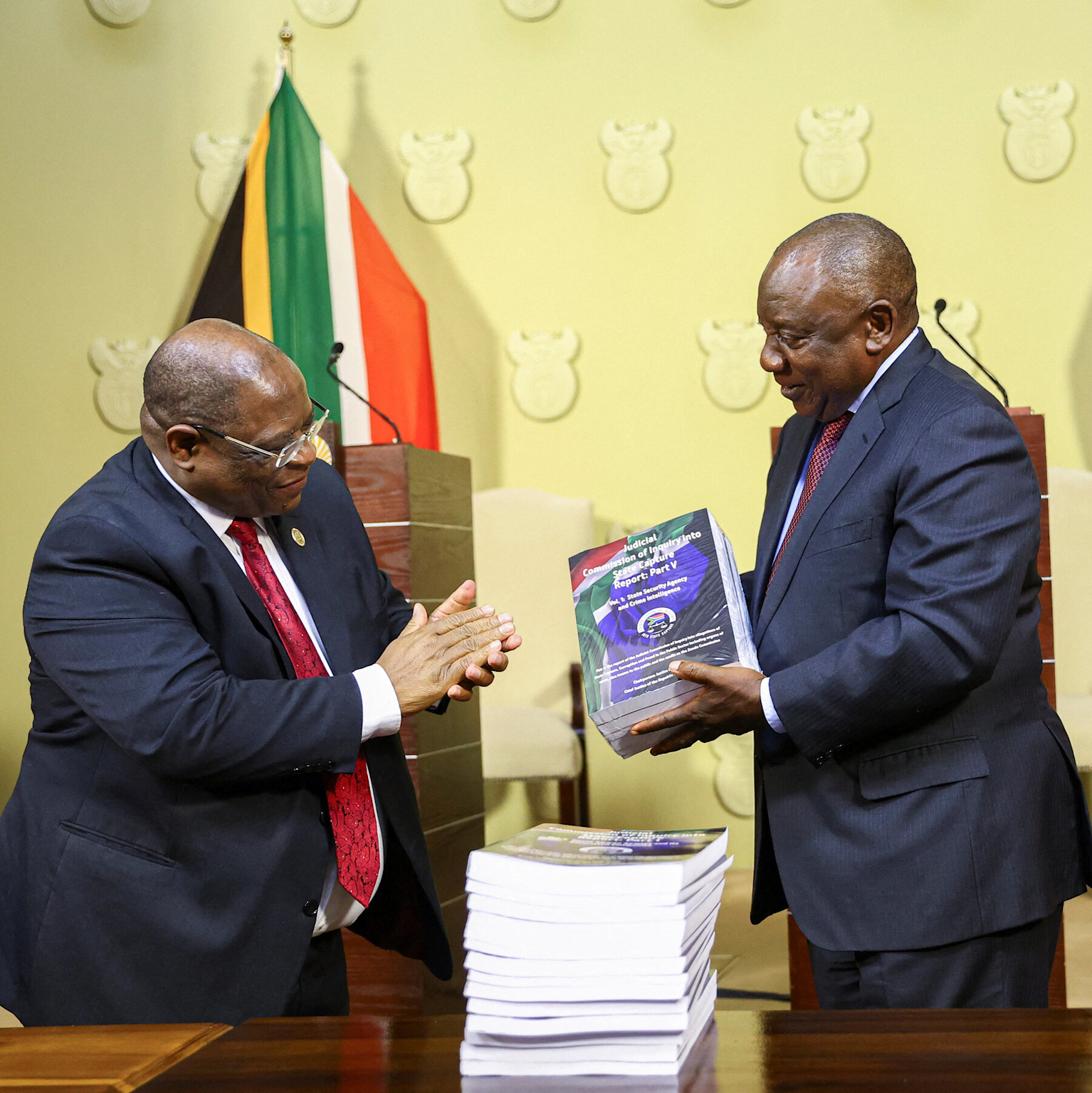
Presentation of South Africa’s State Capture Commission report in an official setting, highlighting government-level corruption investigations
In Nigeria, more than 13,200 children who were receiving assistance to return to school are now without support due to USAID cuts, casting doubt on their future prospects. These cuts were partly motivated by concerns about corruption undermining aid effectiveness.
Dr. Andrew Mwenda of Uganda argues that corruption’s biggest impact may be perceptual: “Perhaps the perception of corruption in Africa could be the biggest problem. The state has significantly shrunk and, with the shrinkage of the state, the opportunities for corruption are also shrinking”.
International Response and Solutions
The World Bank has sanctioned more than 1,100 firms and individuals over two decades through its Integrity Vice Presidency. However, critics argue this reactive approach is insufficient given the scale of the problem. The Bank estimates that 20% of foreign aid is lost to corruption each year, while 30% fails to reach its intended target.
Some donors are implementing more sophisticated monitoring systems. Ukraine’s recent aid programs include spot checks that trace expenditures to verify that budget support reaches intended beneficiaries. Of 475 spot checks conducted, all were carried out without major issues.
The Path Forward: Systemic Solutions
Addressing Africa’s aid corruption crisis requires fundamental changes in how assistance is delivered and monitored:
Enhanced Transparency: All aid contracts, beneficiaries, and results should be published in real-time, following Brazil’s model of public procurement transparency.
Direct Delivery Mechanisms: Bypassing government systems where corruption is endemic, as suggested by successful programs in health and education.
Technology Integration: Using blockchain and digital payment systems to track aid flows from donor to beneficiary.
Civil Society Empowerment: Supporting independent media and anti-corruption organizations with sustained funding and legal protection.
Regional Cooperation: Strengthening institutions like the African Union Advisory Board on Corruption to coordinate continental anti-corruption efforts.
Call to Action
The evidence is clear: foreign aid to Africa is being systematically stolen by corrupt officials while intended beneficiaries remain in poverty. This investigation has exposed the mechanisms, documented the losses, and highlighted the human cost of this theft.
Citizens, donors, and governments must demand accountability. Aid effectiveness depends not just on the amount of money flowing but on ensuring it reaches those who need it most. Without fundamental reforms in how aid is delivered and monitored, billions more dollars will continue to disappear into the pockets of corrupt elites while Africa’s development remains stunted.
The time for excuses has ended. The evidence of corruption is overwhelming, the methods are documented, and the human cost is devastating. Real change requires courage from donors to implement transparency measures, strength from African civil society to continue fighting corruption, and commitment from international partners to support systemic reforms rather than perpetuating failed approaches.
Only through sustained pressure, technological innovation, and unwavering commitment to transparency can Africa break free from the cycle of aid dependency and corruption that has plagued the continent for decades.
Citations and Sources
All citations in this investigation are numbered and correspond to the source materials gathered during research. Full source documentation available upon request to maintain journalistic integrity and enable verification of claims made in this investigation.
About Our Services
Ready to make a difference in exposing corruption and holding power accountable? Our investigative journalism agency specializes in uncovering complex financial crimes, government corruption, and corporate malfeasance across Africa and beyond. We offer comprehensive investigative services for media organizations, NGOs, and development partners seeking to ensure transparency and accountability in their operations.
Top decision makers: Partner with us for in-depth corruption investigations, subscribe to our exclusive intelligence briefings on African governance issues, advertise with our platform to reach engaged audiences who care about transparency, or join our paid contributor program to support independent investigative journalism. Contact us today to discuss how our expertise can serve your accountability and transparency goals.
Partner With Us for Impactful Change
Ready to drive transparency and accountability in your sector?
Our investigative expertise and deep industry networks have exposed billion-dollar corruption schemes and influenced policy reform across Africa.
Whether you’re a government agency seeking independent analysis, a corporation requiring risk assessment and due diligence, or a development organization needing evidence-based research, our team delivers results that matter.
Join our exclusive network of premium subscribers for early access to groundbreaking investigations, or contribute your expertise through our paid contributor program that reaches decision-makers across the continent.
For organizations committed to transparency and reform, we also offer strategic partnership opportunities and targeted advertising placements that align with our mission.
Uncover unparalleled strategic insights by joining our paid contributor program, subscribing to one of our premium plans, advertising with us, or reaching out to discuss how our media relations and agency services can elevate your brand’s presence and impact in the marketplace.
Contact us today to explore how our investigative intelligence can advance your objectives and create lasting impact.
